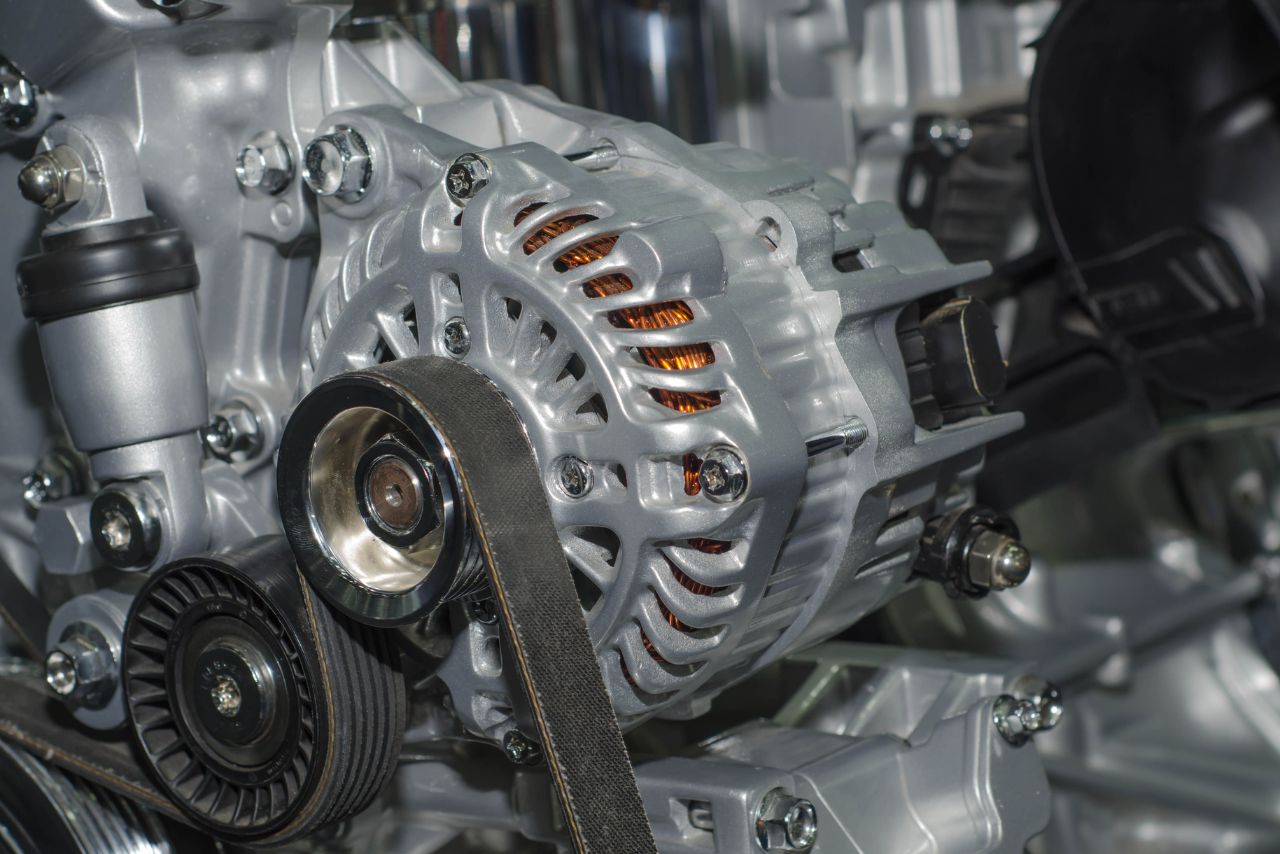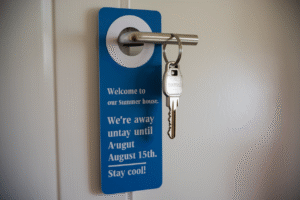Are you tired of dealing with the frustration of New Alternator But Lights Still Flicker in your car, even after installing a brand new alternator? You’re not alone. Many car owners have experienced this issue, and it can be a real headache to troubleshoot.
In this blog post, we’ll explore some of the common causes of flickering lights despite a new alternator, and provide some tips for troubleshooting and resolving the issue.
So, buckle up and get ready to learn how to finally put an end to those pesky flickering lights!
Your lights might still flicker even after you’ve installed a new alternator because the alternator is not properly connected, the wiring is faulty, or the alternator is defective.
Table of contents
Why Your Car’s Lights May Still Flicker Even After Replacing the Alternator?
If you’ve recently replaced your car’s alternator and are still experiencing flickering lights, there may be a few reasons why.
Firstly, it’s important to ensure that the alternator was installed correctly and that all connections are secure. If the issue persists, it may be due to a faulty voltage regulator or a weak battery.
A voltage regulator controls the electrical current that flows from the alternator to the battery, and if it’s not functioning properly, it can cause fluctuations in the electrical system, resulting in flickering lights.
Similarly, a weak or dying battery may not be able to hold a charge, causing the alternator to work harder and potentially leading to flickering lights.
It’s also worth checking the ground connections in the electrical system, as a poor connection can cause electrical issues throughout the car. If you’re unsure about the cause of your flickering lights, it’s always best to consult a professional mechanic for assistance.
Can An Alternator Make Your Lights Flicker?
If you’ve ever experienced your car’s lights flickering while driving, it can be a bit unnerving. And while there could be several possible causes for this issue, one common culprit is a faulty alternator.
An alternator is responsible for generating electricity to power your car’s various electrical components, including the lights. When it begins to fail, it can cause fluctuations in the electrical current, resulting in flickering lights.
A malfunctioning alternator can lead to flickering lights in your vehicle. This occurs when the alternator fails to generate adequate power to operate all the devices in your car simultaneously.
As a result, when you turn on accessories such as headlights or windshield wipers while driving at night, the lights may become dim or flicker because they require more power than the alternator can produce at once.
To determine if your alternator is the cause of the problem, there are a few simple tests you can perform. First, start your car and turn on the headlights. Next, rev the engine up to about 2000 RPM.
If the lights become brighter, then the alternator is likely working correctly. However, if they remain dim or continue to flicker, it’s a sign that the alternator may need to be replaced.
Another way to check the alternator is to use a multimeter to measure the voltage output. With the engine running, connect the multimeter to the battery terminals.
A healthy alternator should read between 13.5 and 14.5 volts. If the reading is below this range, it could be a sign that the alternator is failing.
If you suspect that your alternator is the cause of your flickering lights, it’s essential to address the issue as soon as possible.
A malfunctioning alternator can cause other electrical components to fail, and it can even lead to your car stalling out altogether. By having your alternator checked and replaced if necessary, you can avoid more severe issues down the road.
7 Possible Reasons Why Your Car’s Alternator Isn’t Working Properly?
| Cause | Description |
|---|---|
| Alternator issues | The alternator is responsible for charging the battery and providing electricity to the car’s electrical system. If the alternator is not working properly, it can cause the lights to flicker. |
| Loose or disconnected cables/wiring | Loose or disconnected cables or wiring can cause a loss of power to the headlights, which can lead to flickering. |
| Bad bulbs or fuses | A bad bulb or fuse can also cause the headlights to flicker. |
| Headlight switch going bad | The headlight switch can go bad over time, which can cause the headlights to flicker. |
| Faulty wiringIf the wiring between the alternator and the battery or other electrical components is damaged or faulty, it can cause the lights to flicker. | |
| Internal communication faults: A faulty headlamp switch can create a disruption in the communication made between the electrical system and the computer system which can create flickering. | |
| Dying battery: Your headlights rely on power from the battery to function properly. If the battery is failing, flickering, or dimming headlights may be the result. |
1. Faulty Battery:
A weak or dead battery can cause your alternator to work harder than it should, leading to premature failure. Before replacing the alternator, have the battery checked to ensure it’s supplying the proper voltage.
2. Worn Out Belt:
The alternator belt connects the alternator to the engine, and over time, it can stretch or wear out, causing the alternator to work less efficiently. A slipping or broken belt will prevent the alternator from charging your battery.
3. Faulty Wiring:
Corroded or damaged wiring can create resistance, causing your alternator to work harder than it should. This can lead to overheating and failure.
4. Malfunctioning Voltage Regulator:
The voltage regulator controls the amount of voltage that the alternator produces. When it fails, the alternator can overcharge or undercharge your battery, leading to performance issues.
5. Defective Alternator:
If all other components are functioning correctly, a defective alternator may be the culprit. Signs of a bad alternator include dimming headlights, a dead battery, or a warning light on your dashboard.
6. Blown Fuses:
Blown fuses can also cause issues with your car’s electrical system, including the alternator. If you’ve checked all other components and are still experiencing issues, it’s worth checking the fuses to ensure they’re not blown.
7. Faulty Wiring Harnesses or Connectors:
Faulty wiring harnesses or connectors can also cause issues with the alternator. If the connections are loose, corroded, or damaged in any way, it can disrupt the flow of electricity and cause your car’s electrical system to malfunction.
To troubleshoot this issue, inspect all of the wiring harnesses and connectors related to the alternator and make sure they’re clean and secure.
How to troubleshoot New Alternator But Lights Still Flicker?
1. Check the battery connections:
Loose or corroded battery connections can cause a voltage drop and make the lights flicker. Make sure the connections are tight and free of corrosion.
2. Check the ground connections:
A poor ground connection can cause similar issues. Check the ground connections to make sure they are tight and clean.
3. Check the alternator belt:
A loose or worn alternator belt can cause the alternator to spin too slowly, which can result in flickering lights. Make sure the belt is tight and in good condition.
4. Check the alternator output:
Use a multimeter to check the alternator output. Connect the multimeter to the battery terminals and check the voltage while the engine is running. The voltage should be between 13.5 and 15 volts. If it’s lower, the alternator may not be charging properly.
5. Check the battery:
A weak or dying battery can cause the lights to flicker. Check the battery voltage with a multimeter while the engine is off and then again while it’s running. If the voltage drops significantly when the engine is running, the battery may need to be replaced.
6. Check the voltage regulator:
The voltage regulator regulates the alternator output. If it’s faulty, it can cause the lights to flicker. Test the voltage regulator with a multimeter to see if it’s functioning properly.
7. Check the wiring:
A damaged or faulty wiring can cause issues with the electrical system. Inspect the wiring for any signs of damage, such as frayed wires or loose connections.
8. Check the alternator itself:
While it’s rare, a new alternator can be faulty. If you’ve checked everything else and still can’t find the issue, have the alternator tested to see if it’s functioning properly.
9. Check the voltage drop:
Use a voltmeter to check the voltage drop across the battery cables. A high voltage drop can indicate a problem with the cables or connections.
10. Consult a professional:
If you’ve checked everything and still can’t find the issue, it’s best to consult a professional mechanic or electrician. They may have access to specialized tools and expertise that can help diagnose the problem.
By following these troubleshooting steps, you should be able to identify and fix the issue of new alternator but lights still flicker.
What to do if you think your car’s alternator is failing?
If you suspect that your car’s alternator is failing, it is crucial that you take immediate action. The alternator is an essential component of your vehicle that is responsible for keeping the battery charged.
Without it, your car won’t run, and you’ll be left stranded. The first thing you should do is to check your car’s battery. If it’s dead or low, it may be a sign that the alternator is not working correctly.
Next, you should inspect the alternator’s belt for any signs of wear or damage. If the belt is loose or broken, it can cause the alternator to fail. If you notice any of these warning signs, it’s best to take your car to a mechanic immediately.
They can diagnose the problem and replace the alternator if necessary. Failing to address a failing alternator can lead to costly repairs down the road.
How to Properly Maintain Your Car’s Electrical System?
Maintaining your car’s electrical system is crucial for keeping your vehicle running smoothly.
One of the most important steps you can take is to regularly inspect and replace worn-out or damaged parts, such as spark plugs, batteries, and alternators.
You should also check your car’s wiring and connections for any signs of corrosion or fraying. Another important aspect of maintaining your car’s electrical system is to keep it clean and dry.
This means regularly cleaning your battery terminals and protecting them with dielectric grease.
Additionally, you should avoid overloading your car’s electrical system by limiting the use of high-powered electronics and accessories.
Finally, it’s important to follow the manufacturer’s recommended maintenance schedule for your specific make and model.
By following these simple steps, you can ensure that your car’s electrical system remains in top condition, keeping you safe on the road.
The Signs that Your Car’s Alternator Is Going Bad:
The alternator is one of the most important components of your car’s charging system. It generates the electrical power needed to run the vehicle’s electrical systems, recharge the battery, and keep the engine running.
However, like any other part, the alternator can wear out or fail over time. Here are some signs that your car’s alternator is going bad:
1. Warning light:
The first and most obvious sign is the battery warning light on your dashboard. If it comes on and stays on, it could mean that your alternator is not charging the battery properly.
2. Dimming lights:
If the headlights, interior lights, or dashboard lights are dimming or flickering, it could be a sign of a weak alternator.
3. Dead battery:
If your battery died or needed to be jumped recently, it could be due to an alternator that is not charging the battery while the engine is running.
4. Strange noises:
A failing alternator can make a grinding, whining, or squealing noise. It could be due to worn bearings, loose belts, or a failing pulley.
5. Burning smell:
If you smell a burning odor, it could be due to a failing alternator that is overheating or burning out.
6. Electrical issues:
If your car’s electrical systems are not functioning properly, such as the radio, power windows, or air conditioning, it could be due to a weak or faulty alternator.
7. Stalling or hesitation:
A failing alternator can cause the engine to stall or hesitate, especially at low speeds. This is because the alternator is not providing enough electrical power to keep the engine running.
8. Difficulty starting:
If your car is having trouble starting, it could be due to a dead battery or a weak alternator that is not providing enough power to start the engine.
9. High pitched noise:
If you hear a high-pitched noise coming from the engine, it could be due to a failing alternator that is producing excessive electrical feedback.
10. Corroded battery terminals:
If the battery terminals are corroded or covered in a white powder, it could be due to the alternator overcharging the battery and causing it to leak acid.
How to Extend the Life of Your Car’s Alternator?
If you want to keep your car’s alternator running smoothly for longer, there are a few simple steps you can take. First, make sure to regularly check your car’s battery and keep it charged.
A weak or dead battery can put strain on the alternator and cause it to fail prematurely.
Additionally, avoid overloading your car’s electrical system by minimizing the use of power-hungry accessories like heated seats or high-powered audio systems.
It’s also important to keep your car’s engine clean and free of debris, as a dirty engine can cause the alternator to overheat.
Finally, if you notice any warning signs of a failing alternator, such as dimming headlights or a whining noise coming from under the hood, be sure to have it inspected and repaired promptly.
The Benefits of Replacing Your Car’s Alternator:
The Benefits of Replacing Your Car’s Alternator:
1. Improved Electrical System Performance:
A new alternator will provide consistent and reliable power to your car’s electrical system, ensuring that all components operate as they should.
2. Increased Battery Life:
A faulty alternator can cause your car’s battery to die prematurely. Replacing the alternator will help extend the life of your battery.
3. Better Fuel Economy:
A properly functioning alternator ensures that your car’s engine is not working harder than it needs to, which can lead to improved fuel economy.
4. Enhanced Safety:
A car with a faulty alternator can experience a variety of issues, including dimming headlights and a loss of power steering. Replacing the alternator can help ensure that your car is safe to drive.
5. Cost Savings:
Replacing your alternator may seem like an expense, but it can actually save you money in the long run. A faulty alternator can cause damage to other components in your car, which can be even more expensive to repair.
Why Are All My Lights Flickering While My Car Is Running?

If you notice that all the lights in your car are flickering while the engine is running, it could be a sign of a failing battery.
The battery provides the initial power to start the car, but once the engine is running, the alternator takes over and provides a continuous supply of power to the electrical systems.
However, if the battery is failing, it may not be able to maintain a consistent charge, causing the lights to flicker. This is because the voltage supplied to the electrical systems is fluctuating.
Other signs of a failing battery include difficulty starting the car, a weak or slow cranking sound when turning the key, and a battery warning light on the dashboard.
If you suspect that your battery is failing, it’s important to have it checked and replaced as soon as possible to avoid further damage to the alternator and other electrical components.
Conclusion and final thoughts 💭
If you have already replaced your alternator and are still experiencing issues like flickering lights, it could be due to a faulty voltage regulator or loose wiring.
The voltage regulator is responsible for regulating the amount of electrical power that goes into the battery.
If it is not functioning properly, it can cause the lights to flicker or dim. Loose wiring can also cause similar issues as it disrupts the flow of electrical power.
To fix these issues, you may need to consult with a professional mechanic who can diagnose and repair the problem.
It’s important not to ignore any warning signs related to your car’s electrical system as they can lead to more serious problems down the line.
In summary, while replacing your alternator can provide many benefits such as improved electrical system performance and increased battery life, it is important to remember that there may be other underlying issues causing problems with your car’s electrical system.





Leave a Reply